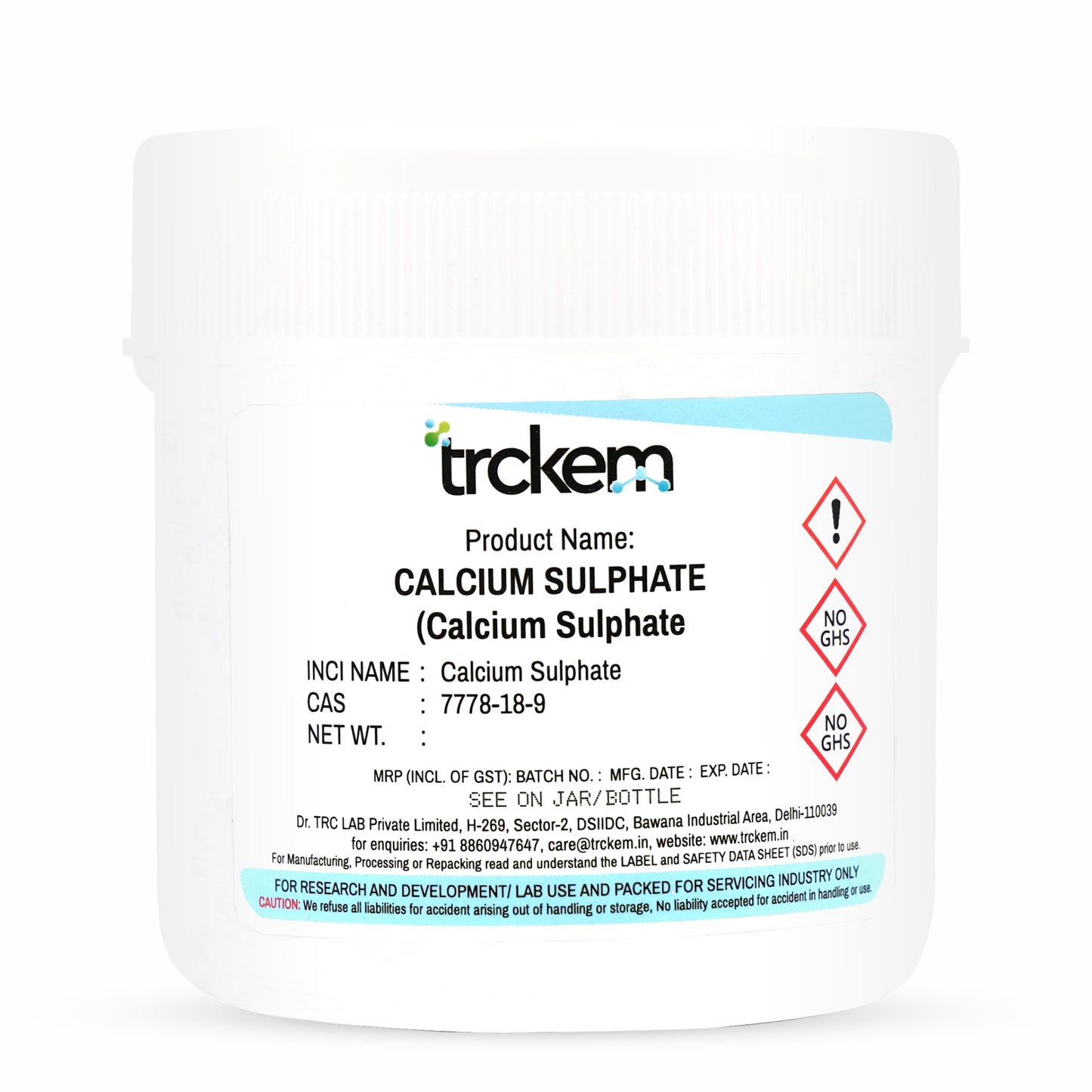
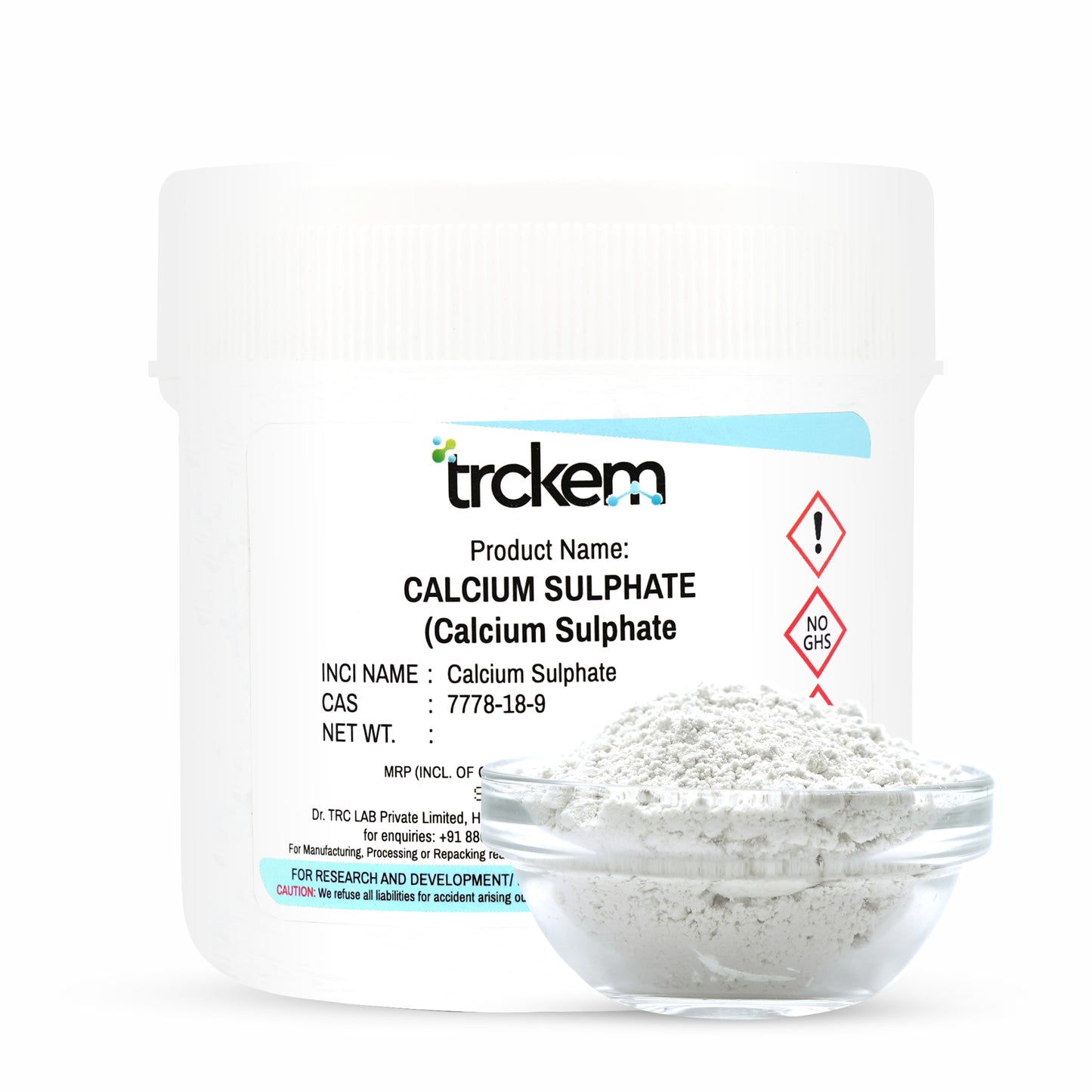
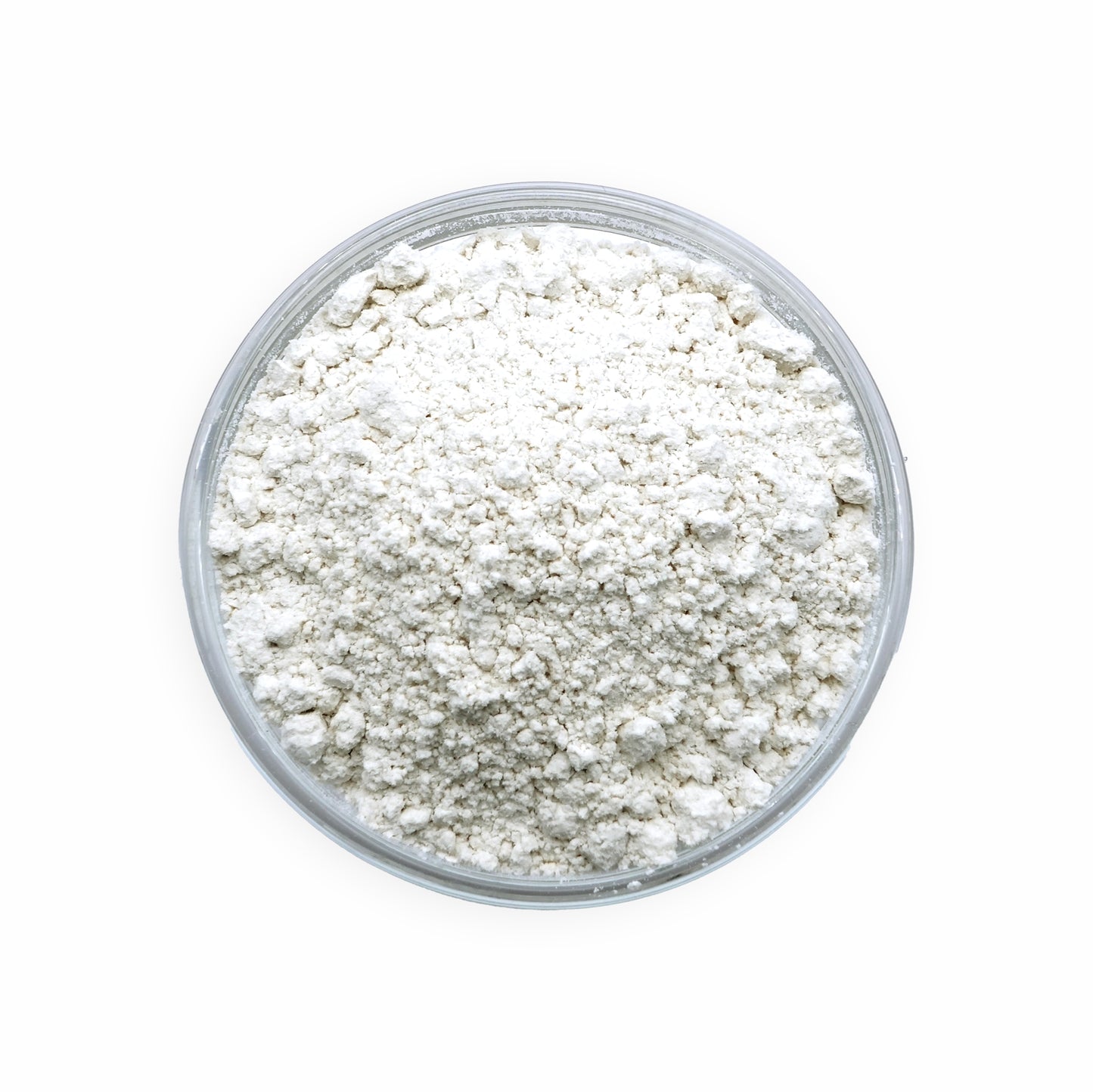
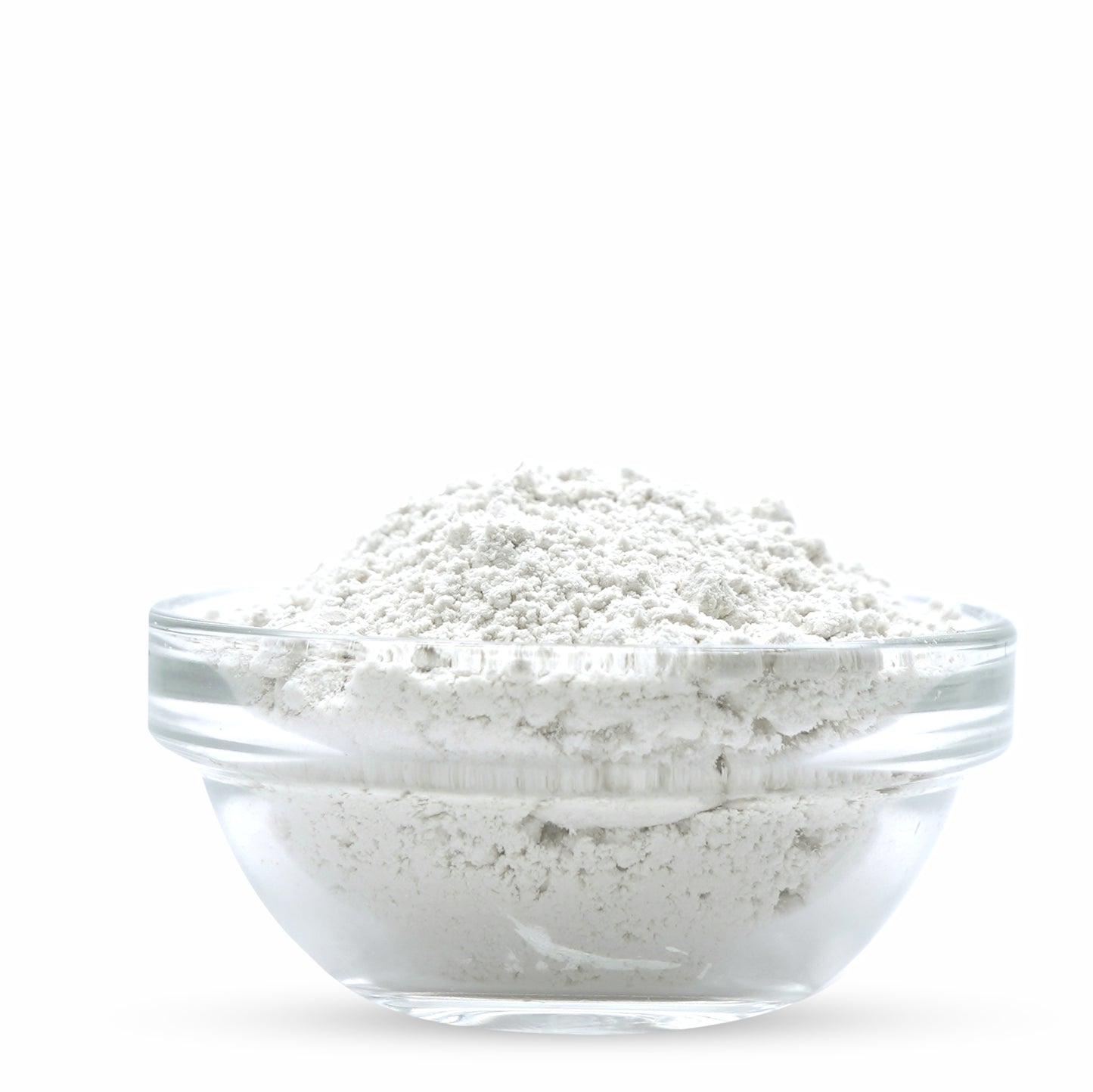
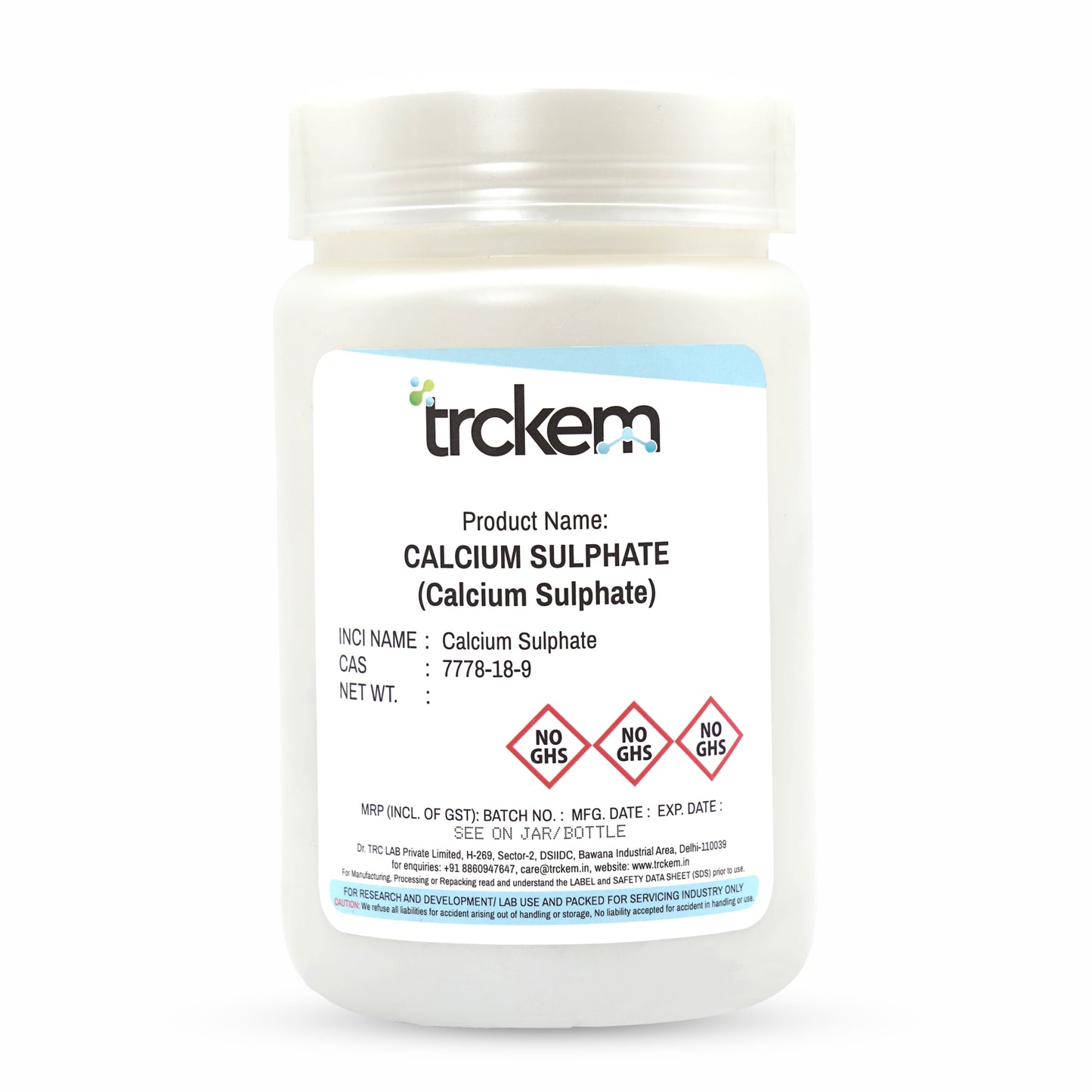
THE STORY OF CALCIUM SULPHATE

Calcium Sulphate: The Functional Mineral Filler & Setting Agent
Calcium Sulphate (CaSO₄), also known as gypsum or anhydrite (depending on hydration level), is a multifunctional ingredient used in cosmetics, pharmaceuticals, oral care, and personal-care powders as a bulking agent, opacifier, absorbent, and controlled-setting filler. Its high purity, whiteness, and inert nature make it ideal for safe topical and ingestible products.

Mineral-Derived, Purified Through Crushing, Calcination & Milling
Commercial Calcium Sulphate is produced by refining naturally occurring gypsum ore, removing impurities, and converting it into either dihydrate (CaSO₄·2H₂O), hemihydrate (plaster grade), or anhydrous powder. TRCkem supplies cosmetic, food, and pharma-grade material with controlled particle size and low heavy-metal content.

Fill. Opacify. Stabilize.
Key functions in cosmetic & personal-care use:
✅ Bulking & texturizing agent in powders, masks, foundations
✅ Provides opacity and whiteness in creams, lotions, pastes
✅ Used in toothpaste & oral care as a mild abrasive and bodying agent
✅ Forms controlled-setting systems in spa body wraps and clay masks
✅ Inert, non-reactive, and safe for sensitive-skin formulations
Found in: pressed powders, face masks, toothpaste, deodorant sticks, bath products, spa media, and dermatological plasters.

Inert, Stable & Globally Approved for Topical and Oral Use
• Typical use level: 2–40%, product-dependent
• Available in dihydrate, hemihydrate, and anhydrous grades
• GRAS-listed, FDA-approved for food & oral care, EU approved for cosmetic use
• Insoluble in water — ideal for stable, non-reactive formulas
• Store dry, sealed, away from humidity to prevent hardening or clumping
Formulator’s Queries, We Answered
1. What is the CAS number and INCI name of calcium sulfate?
The Chemical Abstracts Service (CAS) numbers for calcium sulfate are:
Anhydrous form: 7778-18-9
Dihydrate form: 10101-41-4
Hemihydrate form: 10034-76-1
The International Nomenclature of Cosmetic Ingredients (INCI) name is Calcium Sulfate.
2. What is calcium sulfate?
Calcium sulfate is an inorganic compound composed of calcium, sulfur, and oxygen, with the chemical formula CaSO₄. It occurs naturally in various hydrated forms, including gypsum (dihydrate) and plaster of Paris (hemihydrate). In the personal care industry, it is valued for its multifunctional properties.
3. What functions does calcium sulfate serve in personal care products?
In cosmetics and personal care formulations, calcium sulfate serves multiple functions:
Abrasive: Removes materials from the surface of the body, helps clean teeth, and improves shine.
Anticaking Agent: Helps ensure the fluidity of solid particles and limits their agglomeration in powder cosmetic products.
Astringent: Helps tighten skin pores.
Binding Agent: Allows the cohesion of different cosmetic ingredients.
Bleaching Agent: Lightens hair and complexion shades.
Opacifying Agent: Reduces transparency or translucency of cosmetics.
Skin Conditioning Agent: Maintains skin in good condition.
4. In which personal care products is calcium sulfate commonly used?
Calcium sulfate is utilized in a variety of personal care products, including:
Toothpaste: Acts as an abrasive to aid in cleaning teeth and enhancing shine.
Face Masks: Serves as a binding agent to maintain the structure and consistency of the mask.
Powder Cosmetics: Functions as an anticaking agent to ensure product fluidity and prevent clumping.
Skin Care Products: Used as an astringent to help tighten skin pores and as a skin conditioning agent to maintain skin health.
5. Is calcium sulfate safe for use in personal care products?
Calcium sulfate is generally recognized as safe for use in cosmetics and personal care products. However, it is essential for manufacturers to adhere to regulatory guidelines and recommended usage levels to ensure consumer safety. As with any ingredient, individuals with specific sensitivities should review product labels and consult with a dermatologist if concerns arise.
6. Are there any precautions to consider when using products containing calcium sulfate?
While calcium sulfate is widely used and considered safe, consumers should:
Review Ingredient Lists: Check product labels for calcium sulfate, especially if you have known sensitivities.
Follow Usage Instructions: Adhere to the manufacturer's guidelines for product use.
Consult Professionals: If you experience any adverse reactions, discontinue use and consult a healthcare professional.
Incorporating calcium sulfate into personal care products leverages its multifunctional properties to enhance product performance and provide various benefits to consumers.







